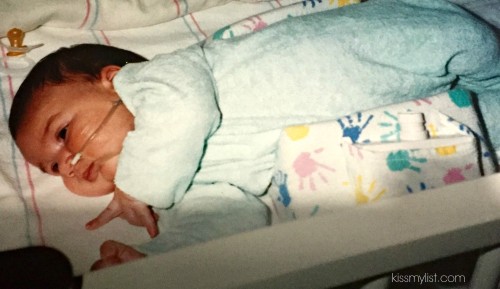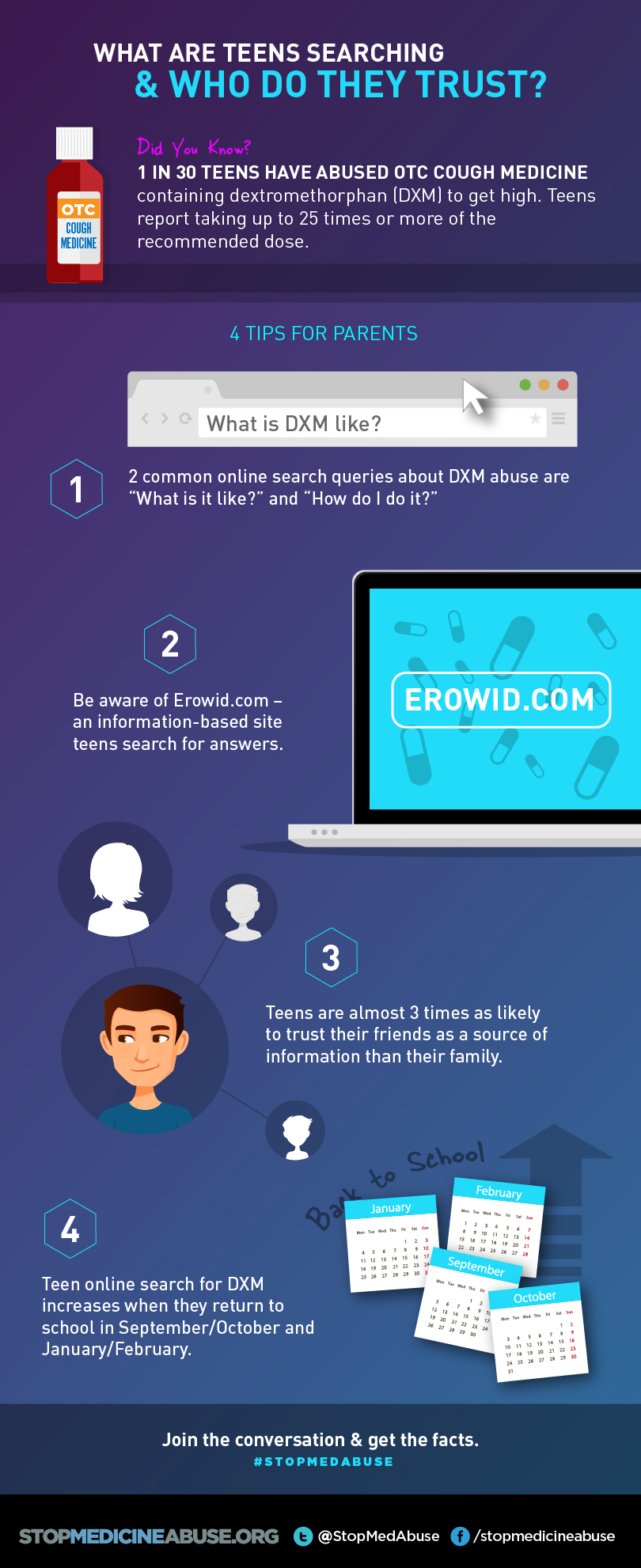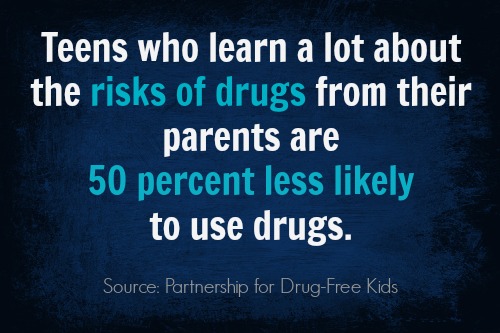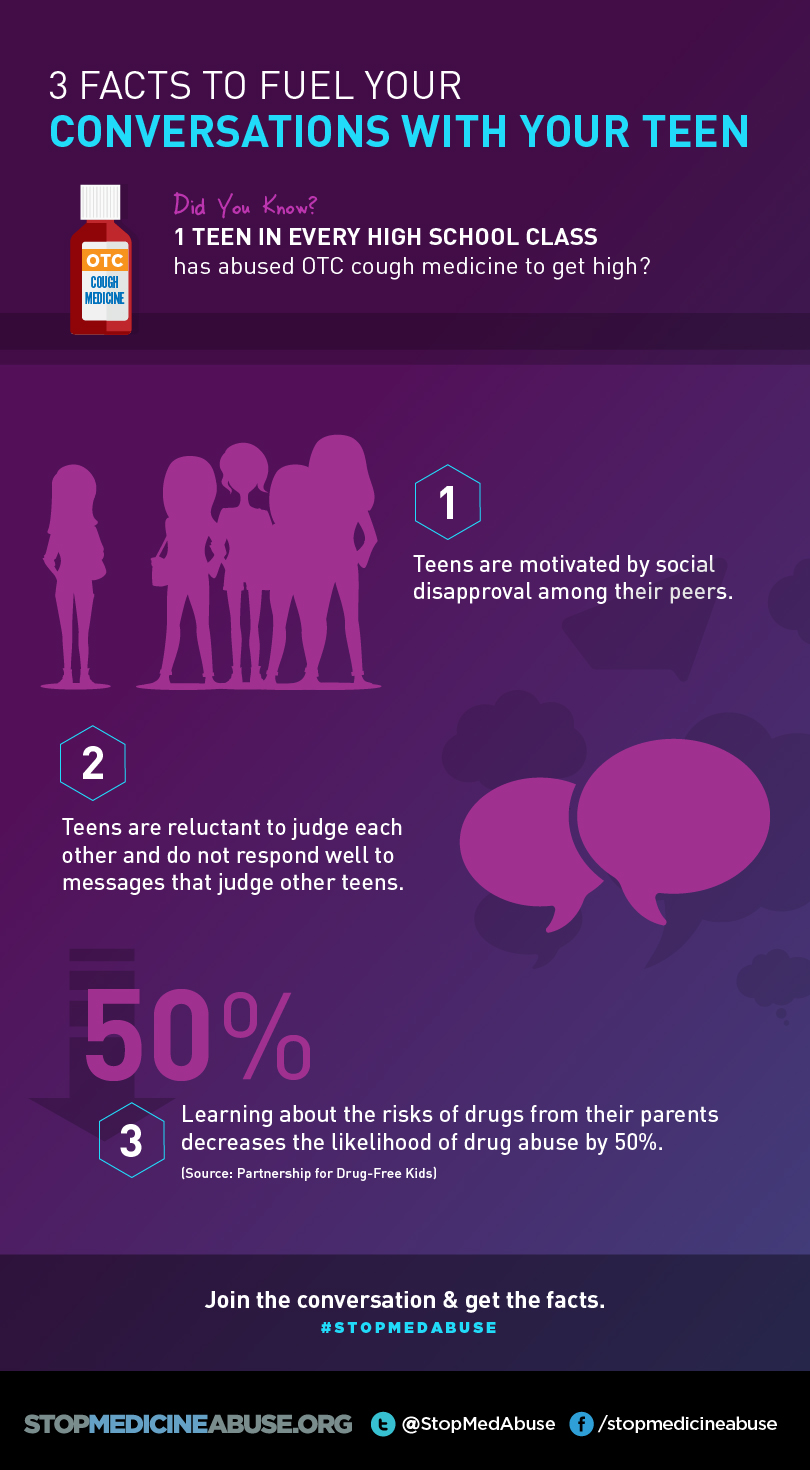In the first weeks of my son’s life, we had a frightening experience with incorrect medication dosage. That baby boy is now a healthy fourteen-year-old who remembers nothing about that time, but I will never forget it.

October is National Medicine Abuse Awareness Month, and EVERY parent needs to be aware. and Cuddly babies and rambunctious toddlers will grow into adolescents; I can’t imagine that any parent of a teenager who abuses drugs imagined that future for their kindergartener.
Potential drug and alcohol abuse top my list of fears as the mother of two teenagers, but I feel less scared when I feel educated and informed. Fortunately, there are many resources available for parents and teens. Specifically, the Consumer Healthcare Products Association (CHPA) runs a Stop Medicine Abuse program targeting parents and community leaders, so that they can spot and prevent teens’ abuse of cough medicine.
Yes, cough medicine.
One in thirty teens reports abusing cough medicine to get high, and one in three teens in high school knows someone who has abused the drug. In addition to the parent program, the CHPA also runs a teen-specific program called WhatIsDXM.com.
So what is DXM?
 DXM is an ingredient found in most OTC cough medicines, and is probably in your medicine cabinet. Taken in excessive doses, DXM has intoxicating, dissociative, and psychoactive properties.
DXM is an ingredient found in most OTC cough medicines, and is probably in your medicine cabinet. Taken in excessive doses, DXM has intoxicating, dissociative, and psychoactive properties.
It should come as no surprise that when teens take up to 25 times or more of the recommended dose of cough medicine to get high, side effects range from nausea and vomiting to death.
The CHPA shared their insights from several years’ worth of research at a web forum called “Inside the Teen Brain: Is there an App for that?” I attended this forum with the intent to learn what I can do to protect my kids.
If you have a kid you want to keep safe, keep reading.
What do you need to know to stop medicine abuse?
 A leading motivator in preventing teens from DXM abuse is fear of social consequences, and the perceived risks of abuse (vomiting and lack of control) lead to social disapproval.
A leading motivator in preventing teens from DXM abuse is fear of social consequences, and the perceived risks of abuse (vomiting and lack of control) lead to social disapproval.
The more teens understand the risks of abuse, the more abusers will experience peer disapproval, and they will be less likely to abuse.
 Teens are reluctant to judge each other, and resist media messages that judge or criticize other teens.
Teens are reluctant to judge each other, and resist media messages that judge or criticize other teens.
They will judge the behavior and its consequences, not the user.
 Teens are almost three times as likely to trust their friends as an information source than their family.
Teens are almost three times as likely to trust their friends as an information source than their family.
But parents are still vitally important. Know where your kids are getting their information.
Who abuses DXM?
The specific target audience for prevention is teens between 14 and 19 who have considered using DXM but haven’t tried it. They are more likely to be male than female.
These are the fence sitters. They are curious, perhaps because they have a friend who has tried it or heard about it. They look for information online.

So what can parents do?
 Visit sites like StopMedicineAbuse.org and PreventRxAbuse.org. Learn the basics, warning signs, slang terms, and the online influences that make teens vulnerable.
Visit sites like StopMedicineAbuse.org and PreventRxAbuse.org. Learn the basics, warning signs, slang terms, and the online influences that make teens vulnerable.
Be involved and engaged with your teens, and empower them to make good decisions.
How do I do that?
Have conversations. Have them in the car, while you having dinner, or while your teen is chilling on the couch. In these situations, the discussion can be natural, not a lecture.

It’s all about presentation. If you make the educational message inviting and entertaining, they will pay attention.
When a teen searches “what is DXM” online, they find the CHPA site WhatisDXM.com. This sites grabs their attention, using games, apps, and bait and switch videos to interrupt teens’ searches and change their perceptions. This campaign uses the negative perception of DXM abuse and fear of social disapproval to make the drug undesirable.
It’s never too soon to educate yourself about the realities our teenagers face; even parents of toddlers will be parents of teenagers one day. And while teens look to their peers for information, so do parents. Be a resource for other parents, and create a community of support.

The good news
Remember those fence sitters? They are the target audience for prevention, and they have been exposed to the digital campaign 525 million times since 2012.
Teens have directly engaged with the campaign’s online content 21 million times, and visited the website one million times.
This campaign is making a difference. Parents are making a difference.
Even if you’ve skimmed all the facts and figures, stop here.
Raising parental awareness is vital. Simply knowing that OTC and DXM abuse exist arms parents with the first tool of prevention. We can all help raise awareness. You can:
- Pin one or both of the infographics in this post, and follow the CHPA Pinterest board HERE.
- Follow @StopMedAbuse and on Twitter or on Facebook. Tweet this post and use the hashtag #StopMedAbuse.
- Visit StopMedicineAbuse.org, bookmark the site, and share with other parents.
- TALK TO YOUR KIDS. It’s never too early; don’t let it be too late.
This blog post is sponsored by the CHPA’s Stop Medicine Abuse educational program. I was compensated to attend the event but all opinions here are my own.

The post Talk to your kids and #StopMedAbuse appeared first on Kiss my List.